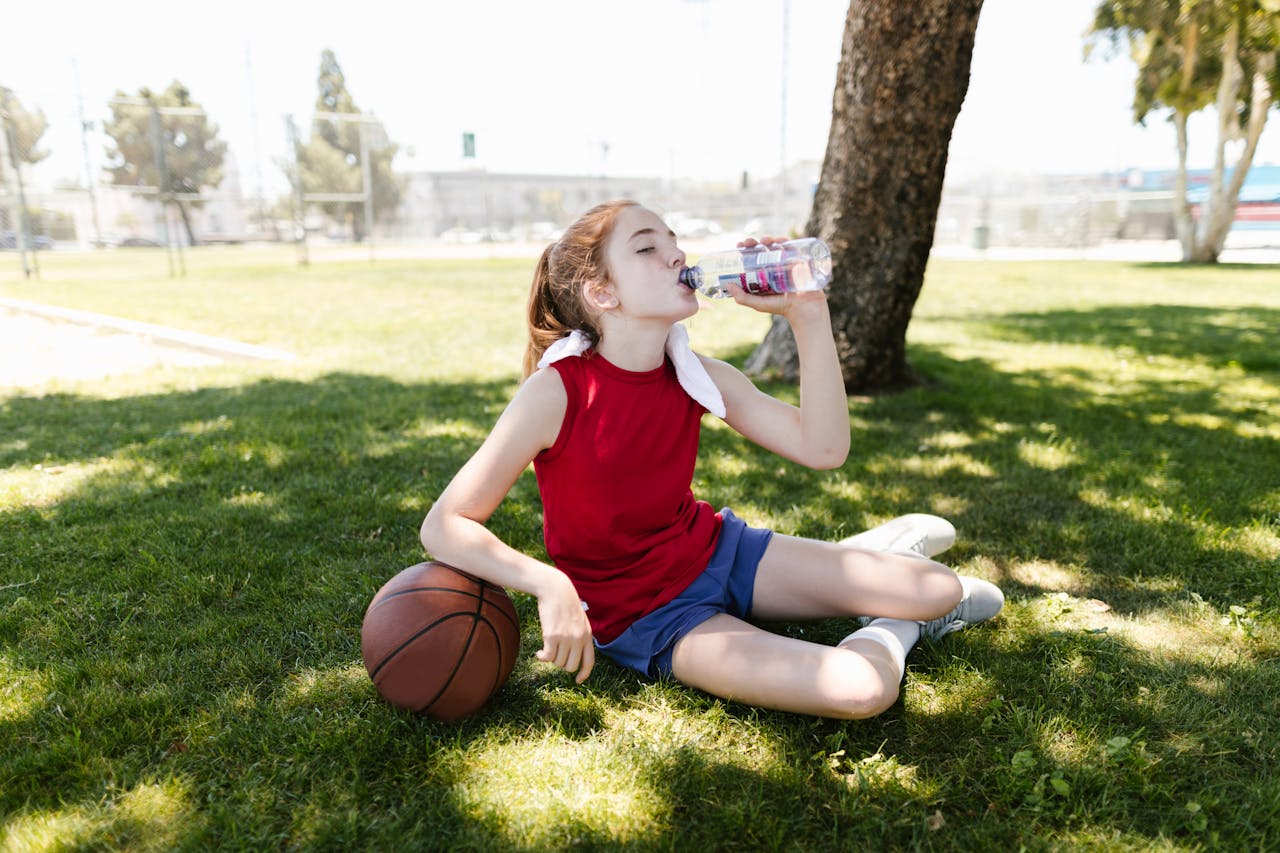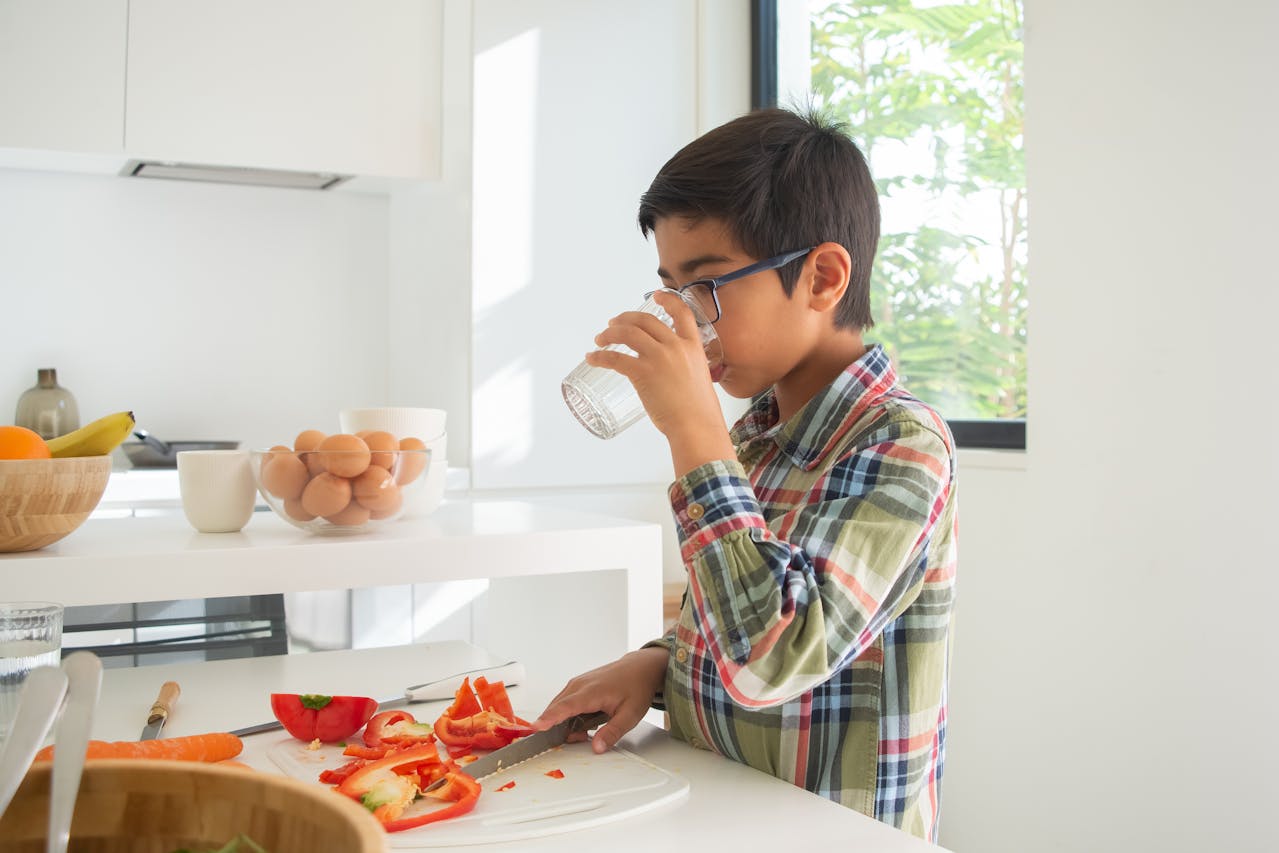As a parent, one of your most essential responsibilities is ensuring that your child is receiving proper hydration. But just how much water should your child drink each day? Is it the same as adults? What happens if they drink too little—or too much? If these questions sound familiar, you’re not alone.
In this comprehensive guide, we’ll walk you through the pediatrician-recommended water intake for children by age group, signs of dehydration, how to encourage healthy hydration habits, and why working with a board-certified pediatrician is crucial for your child’s wellbeing. Whether you’re searching for a “pediatrician near me” or simply want trustworthy advice, this guide is designed for you.
Why Water Matters for Kids
Water is more than just a thirst-quencher—it’s critical for almost every function in your child’s body. From regulating temperature and aiding digestion to supporting organ function and maintaining healthy skin, water keeps everything running smoothly. Because children’s bodies are still developing, they are more susceptible to the effects of dehydration.
Hydration is also tied closely to your child’s energy levels, concentration, and overall mood. When hydration is overlooked, it can affect not just physical health but also academic performance and emotional wellbeing.

How Much Water Should Your Child Drink by Age?
The American Academy of Pediatrics (AAP) offers general guidelines for daily water intake by age. Keep in mind that individual needs may vary depending on physical activity, climate, diet, and overall health.
Infants (0-6 Months)
- Recommended Water Intake: None (only breast milk or formula).
- Why: Their tiny kidneys are not developed enough to handle plain water. Breast milk or formula provides all the hydration they need.
Babies (6-12 Months)
- Recommended Water Intake: 4-8 oz/day in small sips.
- Why: Once solid foods are introduced, small amounts of water can complement breast milk or formula.
This stage is closely linked to dietary transitions. If you’re introducing solids, check out our blog on Foods to Avoid in Your Child’s First Year to ensure you’re not accidentally offering anything harmful.
Toddlers (1-3 Years)
- Recommended Water Intake: 4 cups (32 oz) per day.
- Pro Tip: Offer water consistently throughout the day rather than all at once.
Preschoolers (4-5 Years)
- Recommended Water Intake: 5 cups (40 oz) per day.
- Why: As kids become more active, their hydration needs increase.
School-Age Children (6-12 Years)
- Recommended Water Intake: 6-8 cups (48-64 oz) per day.
- Note: Add more water on days with physical activities or outdoor play.
Teens (13+ Years)
- Recommended Water Intake: 8-11 cups (64-88 oz) per day, depending on gender and activity level.
Signs Your Child Might Be Dehydrated
Mild dehydration in kids can sneak up on you. Watch out for:
- Dry lips and mouth
- Fewer wet diapers or less frequent urination
- Dark yellow urine
- Irritability or unusual tiredness
- Headaches
- Dizziness or lightheadedness
- Crying without tears
Severe dehydration is a medical emergency. If your child shows signs of confusion, rapid breathing, sunken eyes, or lethargy, contact your pediatrician immediately.
Can Kids Drink Too Much Water?
Yes. While it’s rare, excessive water intake can lead to a condition known as water intoxication, which dilutes the sodium in your child’s body and can be dangerous. Signs include nausea, vomiting, bloating, and in severe cases, seizures. Stick to age-appropriate recommendations and avoid forcing your child to drink large amounts of water rapidly.
Tips to Help Your Child Drink Enough Water
Encouraging kids to drink water isn’t always easy. Here are pediatrician-approved strategies:
- Make Water Accessible: Keep a clean bottle or cup within your child’s reach.
- Use Fun Cups and Straws: Sometimes novelty encourages better habits.
- Flavour It Naturally: Add slices of fruit like strawberries, oranges, or cucumbers.
- Offer Water with Every Meal: Make it a default drink.
- Be a Role Model: Let your child see you drinking water regularly.
- Avoid Sugar-Sweetened Beverages: These can lead to poor hydration habits and future health issues.
Many of these tips align closely with strategies for managing picky eaters. For more, check out What to Do When Your Child Is a Picky Eater.
Best Types of Fluids for Hydration
While water should be the go-to beverage, other fluids can contribute to hydration:
- Breast Milk/Formula (for infants)
- Milk (in moderation, for toddlers and older kids)
- Soups and Broths
- High-Water-Content Fruits & Veggies: Watermelon, cucumbers, oranges
Avoid sugary juices, sodas, and sports drinks. These can lead to cavities, obesity, and other long-term health problems.
What Pediatricians Say About Hydration

As a board-certified pediatrician, I often tell parents that proper hydration is just as important as nutrition, sleep, and exercise. Yet, it’s one of the most overlooked aspects of child health.
Hydration directly impacts:
- Cognitive function
- Immune support
- Digestive health
- Temperature regulation
- Nutrient transportation
Discussing hydration with your pediatrician during routine visits helps address any specific concerns related to your child’s activity level or dietary needs.
How to Build Healthy Hydration Habits Early
Habits formed early tend to last. Here’s how to build a lifelong appreciation for water:
- Start Early: Begin offering water in small sips when your baby starts solids.
- Avoid Sugary Crutches: Don’t let juice or soda become a routine.
- Create a Routine: Offer water before and after play, meals, and bedtime.
- Reward Positive Habits: Use praise or small rewards (like stickers) to reinforce water intake.
The Role of Nutrition and Water Intake
Nutrition and hydration go hand in hand. For example, high-fiber foods can help prevent constipation, but they need water to work effectively. Likewise, protein-heavy meals require extra fluids for proper digestion.
If you’re working on establishing a safe and balanced diet for your baby, don’t miss our post on Foods to Avoid in Your Child’s First Year.
Water is one of the simplest yet most powerful tools for keeping your child healthy. From regulating temperature to boosting energy levels, staying hydrated is non-negotiable. By following pediatrician-recommended water intake guidelines and building healthy habits early, you can set your child up for a lifetime of wellness.
For more tips on feeding, hydration, and child health, explore our full blog collection and don’t hesitate to consult your local pediatrician.
